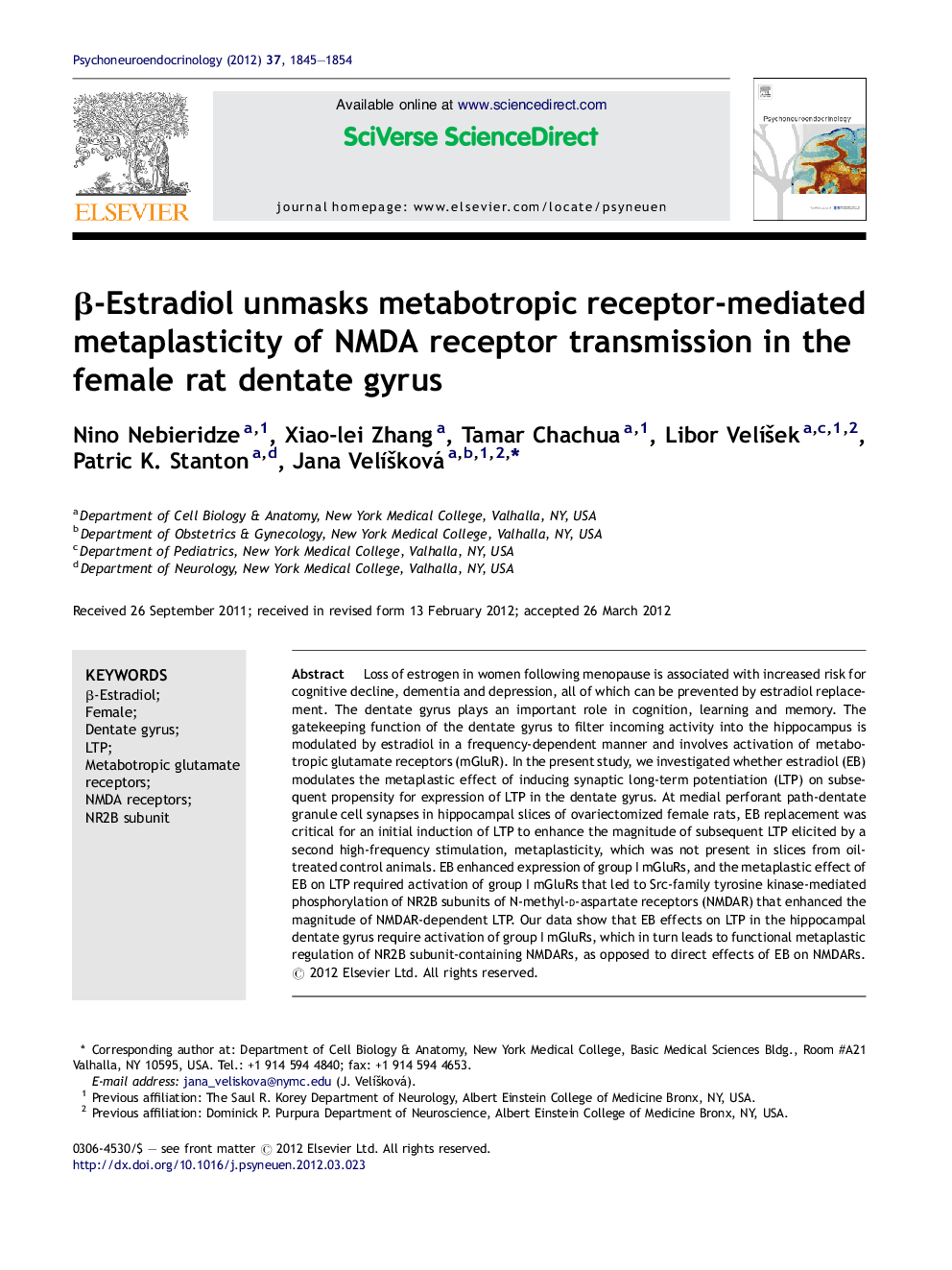| Article ID | Journal | Published Year | Pages | File Type |
|---|---|---|---|---|
| 10306171 | Psychoneuroendocrinology | 2012 | 10 Pages |
Abstract
Loss of estrogen in women following menopause is associated with increased risk for cognitive decline, dementia and depression, all of which can be prevented by estradiol replacement. The dentate gyrus plays an important role in cognition, learning and memory. The gatekeeping function of the dentate gyrus to filter incoming activity into the hippocampus is modulated by estradiol in a frequency-dependent manner and involves activation of metabotropic glutamate receptors (mGluR). In the present study, we investigated whether estradiol (EB) modulates the metaplastic effect of inducing synaptic long-term potentiation (LTP) on subsequent propensity for expression of LTP in the dentate gyrus. At medial perforant path-dentate granule cell synapses in hippocampal slices of ovariectomized female rats, EB replacement was critical for an initial induction of LTP to enhance the magnitude of subsequent LTP elicited by a second high-frequency stimulation, metaplasticity, which was not present in slices from oil-treated control animals. EB enhanced expression of group I mGluRs, and the metaplastic effect of EB on LTP required activation of group I mGluRs that led to Src-family tyrosine kinase-mediated phosphorylation of NR2B subunits of N-methyl-d-aspartate receptors (NMDAR) that enhanced the magnitude of NMDAR-dependent LTP. Our data show that EB effects on LTP in the hippocampal dentate gyrus require activation of group I mGluRs, which in turn leads to functional metaplastic regulation of NR2B subunit-containing NMDARs, as opposed to direct effects of EB on NMDARs.
Keywords
Related Topics
Life Sciences
Biochemistry, Genetics and Molecular Biology
Endocrinology
Authors
Nino Nebieridze, Xiao-lei Zhang, Tamar Chachua, Libor VelÃÅ¡ek, Patric K. Stanton, Jana VelÃÅ¡ková,
